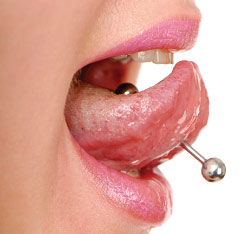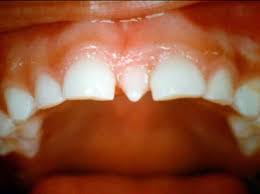Although newborns usually have no visible teeth, most start developing baby teeth between 4-7 months of age. Children usually have their full set of 20 primary teeth in place by age 3. As their teeth erupt, some babies may become fussy, sleepless and irritable, lose their appetite or drool more than usual. But diarrhoea, rashes and a fever are not normal for a teething baby. Your child may have sore or tender gums when teeth begin to erupt. Gently rubbing their gums with a clean finger, a small cool spoon,or a moist gauze pad can be soothing. Your doctor may recommend a pacifier. When your child’s teeth begin to come in, brush them gently with a child’s size toothbrush and water. For children between the ages of 2 and 6, brush their teeth with a pea-sized amount of fluoride toothpaste. Be sure they spit out the toothpaste. You should start regular dental check-ups for your child after their first tooth appears, but no later than their first birthday.
clean finger, a small cool spoon,or a moist gauze pad can be soothing. Your doctor may recommend a pacifier. When your child’s teeth begin to come in, brush them gently with a child’s size toothbrush and water. For children between the ages of 2 and 6, brush their teeth with a pea-sized amount of fluoride toothpaste. Be sure they spit out the toothpaste. You should start regular dental check-ups for your child after their first tooth appears, but no later than their first birthday.






